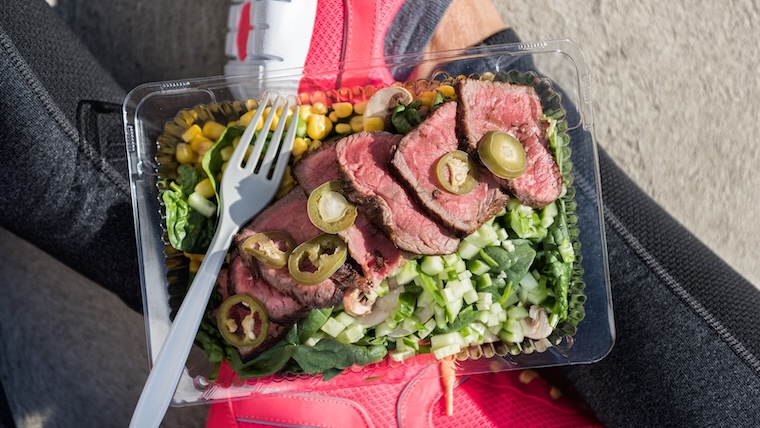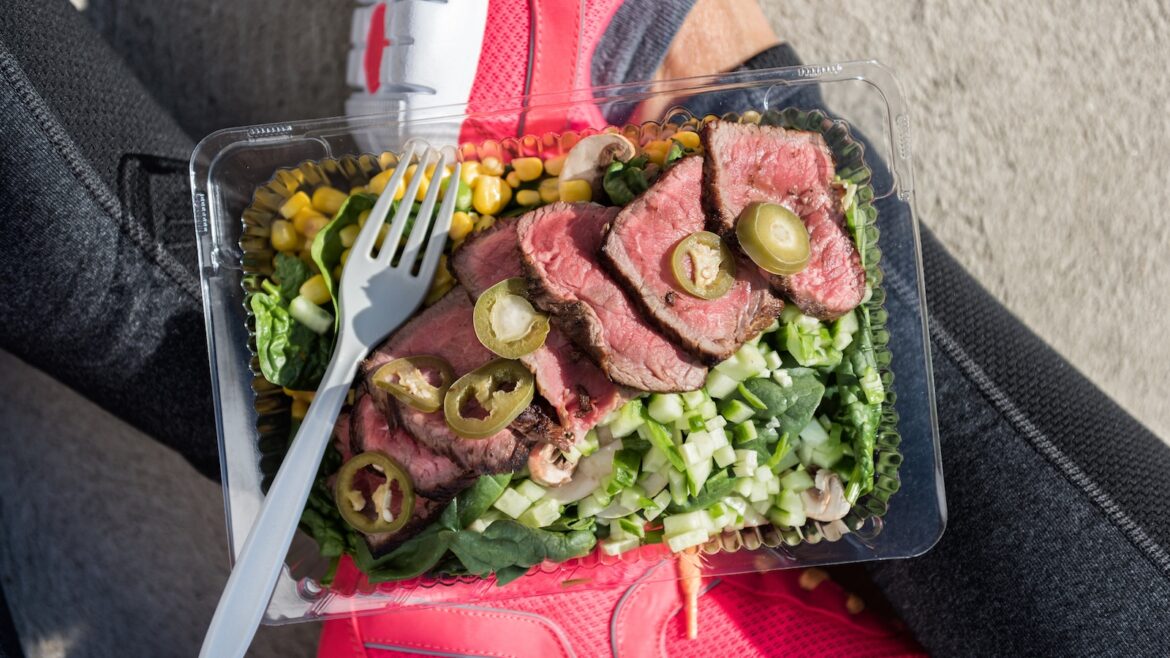Satiety is a key performance hack.
Why do some workouts feel epic while others suck? Diet habits can make or break progress. Fueling performance is more nuanced than many realize, and you shouldn’t wing it.
Renaissance Periodization‘s Dr. Mike Israetel recently offered a science-backed roadmap to optimizing performance fuel.
You don’t have to eat before training as long as you feel energized.
—Dr. Mike Israetel
Role of Pre-Workout Meals
There are two principal roles of pre-workout nutrition:
- Energy Boost and Mental Drive: Carbs and fats fuel physical and cognitive performance.
- Minimizing Muscle Breakdown: Pre-workout protein and carbs prevent excessive muscle catabolism. (1)
How much energy you can put in and how much training effort you get out is a huge unlock to more gains.
—Dr. Mike Israetel
Fullness: The Key Performance Factor?
Satiety plays a significant role in effort output. (2)(3)
If you have food in your stomach, even if it has few or almost no calories, people have way better workout energy.
—Dr. Mike Israetel
Feeling empty may trigger energy conservation mechanisms, affecting training intensity. (4) Balanced nutrition is likely the best pre-workout fuel to optimize effort and muscle gains.
[Related: Do You Actually Need Carbs Before Training?]
Timing Nutrition for Training
The ideal workout meal and portions depend on diet habits and training goals. Dr. Israetel structures pre-workout nutrient timing into three tiers:
- 30 minutes before training: Small meals with fast-digesting carbs (e.g., bananas, Gatorade), fast-absorbing proteins (e.g., whey isolate), and minimal fats.
- Too much fat slows protein and carb absorption. Ideally, achieve satiety without feeling overstuffed close to workouts.
- 2-3 hours before: Medium-sized meals (¼ of daily intake) containing moderately digesting proteins (e.g., eggs and chicken), carbs (e.g., rice, pasta), and some fats.
- 4-6 hours before: Larger meals (up to half of daily caloric intake), comprising slower-digesting proteins, complex carbs, and higher fats for satiety.


Proper macronutrient timing can enhance metabolic response and performance. (5)
Pre-Workout Meal Examples
- 30 min before: Protein shake and banana.
- 2.5 hours before: Turkey sandwich with veggies and skim milk.
- 5 hours before: High-calorie burrito.
Hydration is pivotal to performance. Pre-workout nutrition should be tailored based on workouts, food tolerance, and satiety.
More In Research
References
- Krzysztofik M, Wilk M, Wojdała G, Gołaś A. Maximizing Muscle Hypertrophy: A Systematic Review of Advanced Resistance Training Techniques and Methods. Int J Environ Res Public Health. 2019 Dec 4;16(24):4897. doi: 10.3390/ijerph16244897. PMID: 31817252; PMCID: PMC6950543.
- Naharudin MN, Adams J, Richardson H, Thomson T, Oxinou C, Marshall C, Clayton DJ, Mears SA, Yusof A, Hulston CJ, James LJ. Viscous placebo and carbohydrate breakfasts similarly decrease appetite and increase resistance exercise performance compared with a control breakfast in trained males. Br J Nutr. 2020 Mar 16:1-9. doi: 10.1017/S0007114520001002. Epub ahead of print. PMID: 32174286.
- King A, Helms E, Zinn C, Jukic I. The Ergogenic Effects of Acute Carbohydrate Feeding on Resistance Exercise Performance: A Systematic Review and Meta-analysis. Sports Med. 2022 Nov;52(11):2691-2712. doi: 10.1007/s40279-022-01716-w. Epub 2022 Jul 9. PMID: 35809162; PMCID: PMC9584980.
- Bauer PV, Hamr SC, Duca FA. Regulation of energy balance by a gut-brain axis and involvement of the gut microbiota. Cell Mol Life Sci. 2016 Feb;73(4):737-55. doi: 10.1007/s00018-015-2083-z. Epub 2015 Nov 5. PMID: 26542800; PMCID: PMC11108299.
- Schoenfeld BJ, Aragon AA, Krieger JW. The effect of protein timing on muscle strength and hypertrophy: a meta-analysis. J Int Soc Sports Nutr. 2013 Dec 3;10(1):53. doi: 10.1186/1550-2783-10-53. PMID: 24299050; PMCID: PMC3879660.
Featured image via Shutterstock/Maridav
